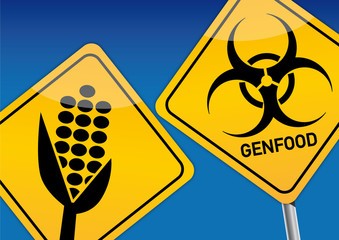More than a hundred Nobel Prize winners have written an open letter on the genetic engineering debate. In doing so, they are head-on against the environmental protection organization Greenpeace.
The letter is addressed to all governments in the world and to the UN.
So I ask you – how can the organization for green peace – Greenpeace be for the genetic manipulation of food …
The signatories also include the Swiss Nobel Prize winners Werner Arber and Edmond Fischer. The appeal refers to a call by the UN food and agriculture organization FAO, according to which global food production must be doubled by 2050 in the fight against hunger.
We need GMO so that * WE * (who we are) can feed all people in the world.
Is this right? Certainly not! So these * WEs * should stop letting mega-tons of grain rot every year. * MAN * would rather destroy the crops of entire countries and let half of humanity starve to death … to then lead we need GEN-Tech …
Thanks to genetic engineering, forever young-beautiful-healthy and always food – these are the new industrial myths.
With millions of dollars in propaganda expenditure (for a short time still “world reserve currency”) this message is brought to the people by large corporations, advertising and propaganda experts, acceptance researchers and politicians. Criticism that goes beyond the permitted discussion niches is annoying.
Transgenic animals are the simple further development of breeding, says the genetic engineering lobby. But even with some excesses of conventional breeding we have created incredible animal suffering. With genetic engineering, breeders can now, godlike, reach into the construction kit of life and create new species.
Where is our responsibility for the suffering fellow creature, the animal, and where are the ethical limits to our actions? If only the profit-seeking of industry determines ethics, then that is barbarism.
Monsanto GM plants cause poison-resistant pests
“The promise of salvation made by the genetic engineering lobby is reversed. Instead of eliminating the harmful insects, the pests are increasingly becoming resistant to the poison formed in GM plants, ”warns Jens Karg, spokesman for GLOBAL 2000. In addition to the spread of resistant superweeds, the study “Field-Envolved Insect Resistence to Bt Crops” by the University of Arizona shows that in just three years the number of resistant bollworms in GM cotton fields has increased from zero to 50 percent. According to the study, some insects have become 100 to 1000 times less sensitive to the Bt toxin.
Labelling

Many approved products made from GMOs (Genetically Modified Organisms) are not labeled. With a low proportion of genetically modified components, as long as the contamination happened “accidentally” (“accidentally” – is pure manipulation), foods are considered to be “GMO-free”! Food made from animals that have received genetically modified feed does not have to be labeled either. Control becomes difficult, for example, with oil, where foreign genes can no longer be detected in the end product.
Although around 90% of consumers reject genetic engineering in their food, they do not have any real freedom of choice.
Organic farmers and organic companies also see problems in the long term in keeping their food free from genetic engineering, because, for example, mixing occurs during the production process.
In 1913 100% of all grain was owned by farmers. In 2013, 95% of all grain was owned by large corporations.
Welcome to your “bright” biotech future!







